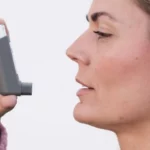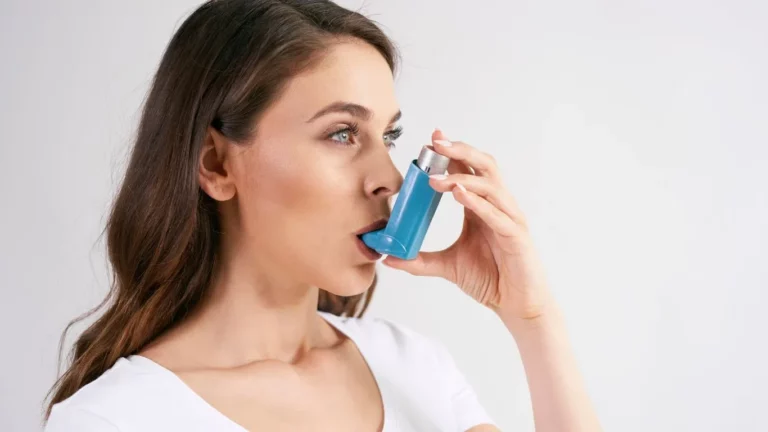Can Asthma Be Triggered by Perfumes? – A Comprehensive Guide
Wondering if perfumes could be a culprit in triggering your asthma? Well, you’re not alone! A lot of people with asthma find that certain smells or fragrances can worsen their symptoms, and perfumes are one of the common offenders. If you’re curious about whether perfume can actually trigger asthma, or if you’re wondering why it happens, we’re breaking it down here. Grab a seat and let’s dive into it!

What is Asthma?
Before jumping into the specifics about perfumes, let’s quickly go over what asthma is. Asthma is a chronic condition where the airways in your lungs become inflamed and narrow, making it hard to breathe. People with asthma often experience wheezing, shortness of breath, coughing, and tightness in the chest, especially when they come into contact with asthma triggers. Triggers can vary from person to person and include things like cold air, dust, pollen, pet dander, and yes, even perfumes! Understanding what can set off your asthma symptoms is key to managing the condition.
Can Perfumes Trigger Asthma?
The short answer: yes, perfumes can trigger asthma symptoms for some people. In fact, perfumes, as well as other strongly-scented products like air fresheners or cleaning supplies, are known to irritate the airways and cause asthma flare-ups. This happens because perfumes contain chemicals like alcohols and fragrances that can irritate the respiratory system, especially if someone is sensitive to them. If you have asthma, your airways are already more sensitive than someone without the condition, so inhaling certain fragrances can worsen your symptoms or even lead to an asthma attack. 
Why Do Perfumes Trigger Asthma?
Perfumes and fragrances are made from a blend of natural and synthetic chemicals that create their signature scent. Some of these chemicals are volatile organic compounds (VOCs), which can irritate the respiratory system when inhaled. Here’s why perfumes are so problematic for people with asthma:
- Strong Smells Overwhelm Sensitive Airways: For people with asthma, strong smells, like those from perfumes, can trigger an immediate response in the airways. This causes them to become inflamed and tight, leading to asthma symptoms. The stronger the fragrance, the more likely it is to cause discomfort.
- Chemical Sensitivity: Many commercial perfumes contain synthetic chemicals, some of which are allergens that can trigger a reaction in people with sensitivities. These chemicals might not always be listed on the packaging, making it tricky to know what you’re being exposed to.
- Air Quality Deterioration: When you use perfumes, especially sprays, the chemicals released into the air can decrease indoor air quality. Breathing in polluted air can be a big issue for those with asthma, as it can make breathing even more difficult.

Signs Perfumes May Be Triggering Your Asthma
Wondering if perfumes are triggering your asthma symptoms? Here are some signs to watch for:
- Wheezing: A whistling sound when breathing, especially during exhalation, is common in asthma flare-ups.
- Shortness of Breath: If you suddenly feel out of breath or find it hard to catch your breath after exposure to perfume, it could be a sign that it’s affecting your asthma.
- Chest Tightness: A feeling of tightness or pressure in your chest is another classic asthma symptom.
- Coughing: Coughing, especially at night or after exposure to strong scents, is a common asthma symptom.
If you notice any of these symptoms after being around perfumes, it’s worth considering that the scent may be a trigger for you.
How to Avoid Perfume Triggers
If you’re dealing with asthma and find that perfume is causing you issues, here are a few tips for managing the situation:
- Choose Fragrance-Free Products: Many personal care products, like lotions, deodorants, and soaps, come in fragrance-free options. Opting for these can help minimize the chance of a flare-up.
- Avoid Strong Perfumes: Strong, overpowering perfumes are more likely to trigger asthma symptoms. If you like to wear fragrance, choose subtle, lighter scents and apply sparingly.
- Ventilate Your Home: Good air circulation can help dilute any lingering perfume fumes in the air. Open windows, use fans, or consider air purifiers to keep the air fresh.
- Inform Others: If you’re in public or at work, don’t hesitate to let people know about your sensitivity to strong scents. They’ll likely appreciate your honesty, and it may prevent potential triggers.
- Opt for Natural Scents: Natural essential oils like lavender or eucalyptus can sometimes be gentler on your airways. But even with these, it’s best to proceed with caution. Some people with asthma find them soothing, while others may still react negatively.

Is It Just Perfumes?
While perfumes are a common trigger for asthma, they’re not the only fragrance-related culprit. Here are a few other sources that may worsen asthma symptoms:
- Cleaning Products: Many household cleaners, air fresheners, and disinfectants contain harsh chemicals or artificial fragrances that can trigger asthma.
- Cigarette Smoke: Smoke contains chemicals that can irritate the lungs and trigger asthma attacks. It’s not just cigarette smoke but also secondhand smoke.
- Candles: Scented candles, especially those made with paraffin wax, can release chemicals that irritate the respiratory system.
- Hairspray: Aerosol products like hairsprays often contain chemicals and alcohols that can cause asthma flare-ups.
Managing Asthma in a Fragrant World
Perfumes are just one of many triggers, but that doesn’t mean you have to live in a fragrance-free bubble! With a little bit of planning, you can manage your asthma while still living your life. Here’s a quick list of ways to manage asthma in a world full of fragrances:
- Know Your Triggers: Keep track of the products and scents that affect you the most. This can help you avoid them in the future.
- Carry Your Medication: Always have your inhaler or prescribed medication on hand, just in case you need it.
- Talk to Your Doctor: If you’re unsure about what’s triggering your asthma, or if you’re having a hard time controlling your symptoms, it’s a good idea to speak with your healthcare provider. They can help you figure out a treatment plan that works for you.
Conclusion
In short, yes, perfumes can absolutely trigger asthma symptoms in some people. The chemicals in perfumes, especially strong or synthetic ones, can irritate the respiratory system and make breathing more difficult. But with a little awareness and a few smart choices, you can still navigate a fragrant world without letting perfumes get the best of you!
Appendices
References
- Asthma and Allergy Foundation of America. (2024). Asthma Triggers. Read Article
- National Institutes of Health (NIH). (2023). Understanding Asthma. Read Article
- Environmental Protection Agency (EPA). (2023). Air Quality and Asthma. Read Article
FAQs
- Can any type of perfume trigger asthma? Yes, perfumes with strong or synthetic fragrances are more likely to trigger asthma. Natural scents may still cause issues for some individuals.
- What should I do if I have an asthma attack triggered by perfume? If you experience an asthma attack, use your inhaler or prescribed medication immediately. If symptoms worsen, seek medical attention.
- Are there any safe perfumes for people with asthma? Some people with asthma may tolerate certain lighter or natural fragrances, but it’s best to test products in small amounts before full use.
- Can asthma cause long-term effects if triggered by perfume? Asthma flare-ups, if frequent or severe, can lead to long-term lung damage. Proper management is key.
- What are other common asthma triggers besides perfumes? Common asthma triggers include dust, pollen, smoke, pet dander, and mold.
Disclaimer
Disclaimer: The information provided in this article is for educational purposes only and does not substitute for professional medical advice. Always consult with a healthcare provider regarding any asthma-related concerns or symptoms. Individual needs may vary, and professional guidance is crucial for personalized care.

Bianca Nala is a skilled writer with a deep focus on respiratory disorders. Her articles on Healthusias.com reflect her expertise, providing readers with reliable and engaging insights into respiratory health.














